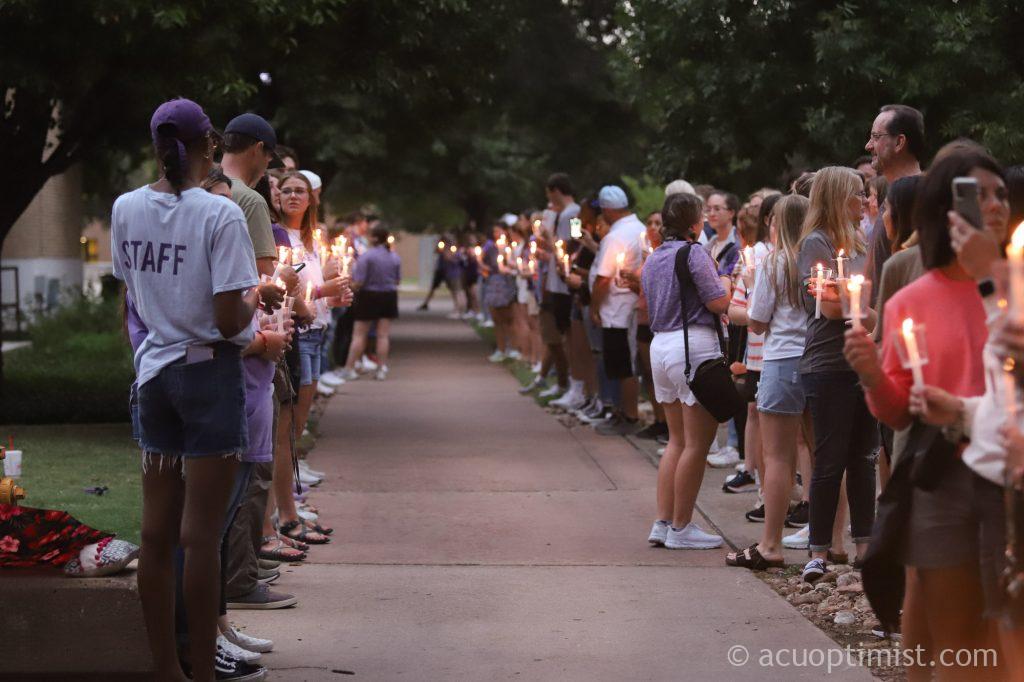“Lose the beanie.”
“Change your shoes.”
“Don’t ride the skateboard, if you’re going to wear the beanie.”
The “gay check” was a routine part of every morning for Jalen Garza, junior youth and family ministry major from San Antonio, during her first year at ACU.
“It was scary to leave my freshman dorm room and look too gay,” Garza said. “I became a watered-down version of myself that would walk on campus every day.”
Although Garza has become more comfortable being herself on a campus that disapproves of her sexuality, many LGBTQ+ students have not. Even the ones who have gained more support from their peers and select professors still show up every day afraid, feeling marginalized by ACU’s culture and expectations.
This is not the same campus for gay students as it is for straight students. It is time ACU makes a genuine effort to make all students, regardless of gender identity or sexual orientation, feel safe, loved and wanted.
Dr. Tamara Long, vice president for enrollment and student life, recognized the university to be an imperfect establishment run by imperfect people, and although there is a desire to give students a sense of belonging, that too is done imperfectly. Long said the best thing the university can do to improve is to continually pursue relationships and for students and administration alike to listen to each other in an attempt to understand differing view points.
There are many ways in which we can commend the university for adapting and making at least somewhat of an effort to accommodate the LGBTQ+ population on campus. Although it took more time than it should have, Voice, the LGBTQ+ support and educational group on campus, is gaining more recognition from the university and was allowed to be present at ACU Fest for the first time this August. The organization even has permission to create pins and graphics that display the ACU logo against a rainbow background.
However, we still have a long way to go. For example, at the end of a long paragraph committing to extend love and grace even to students who do not agree with ACU’s interpretation of scripture, the ACU student handbook states: “Our hope for all students is that they will pursue relationships in keeping with this historical perspective [sexual activity is reserved for the context of marriage between a man and a woman].” Although this clause intends to steer the conversation away from sexual preference and towards abstaining from sexual activity until marriage, the heterosexual implication and pressure is still present.
In addition, in the handbook’s non-discrimination policy, there is no mention of non-discrimination based on sexuality. How can we be a university that acts justly as in Micah 6:8 if we invalidate the reality of same-sex relationships and do not promise all students protection from discrimination for any reason?
I interviewed several students, some who wished to remain anonymous, and the consensus: queer students are exhausted. Students come to ACU to get an education, but every day are caught in an uphill battle, fighting just to be themselves. Aside from specific environments, students express being stressed on campus as they do not know who among their peers or professors are going to accept them, and fear being treated differently upon people finding out about their queerness.
This is a reality straight students do not have to face. Alumnus Kit Myers (‘21), former president of Voice, describes the message he and other students understood from the administration’s hollow support of Voice and the LGBTQ+ population on campus: “Your presence is less valuable and less wanted than our straight students.”
Although students may not feel safe on campus to fully express who they are, there is still a love for ACU. Garza said she loves the Christian education she receives. Myers said if he had to go through college again as a gay man, he would return to ACU in a heartbeat.
The fact that these students who have felt unwanted on this campus can still express their love for it speaks highly of the university and the special community we have here. In many ways, ACU lives up to the loving, welcoming community it advertises, and for that deserves applause. Let us continue this legacy and extend the narrative to include students of all gender identities and sexual orientations.
This is not the same campus for gay students as it is for straight students. Change in the culture starts at the top. The students I talked to, and many others, are tired of hiding out of fear and shame. They are tired of being made to feel like they are in violation of ACU’s mission. Love thy neighbor with an authentic, genuine, Christ-like love, explicitly to include all students regardless of gender identity or sexual orientation. As Myers said: “If you’re going to say that you are a loving university, please prove it.”

